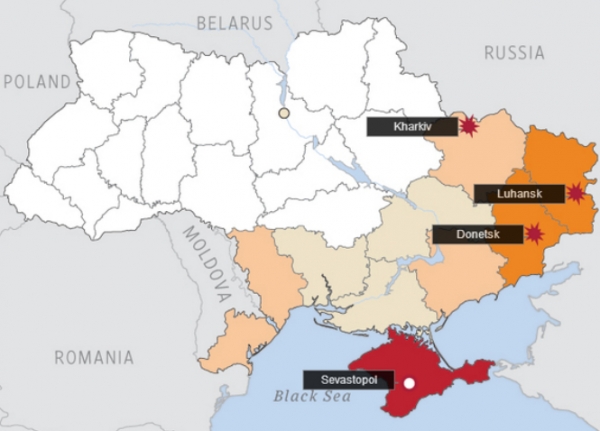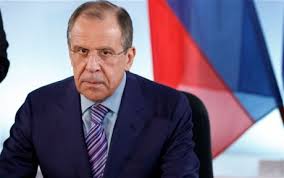 Russia has announced it will recognise separatist polls in Ukraine next weekend, fuelling tensions with the country’s newly elected pro-western leaders as they negotiate on forming a coalition government.
Russia has announced it will recognise separatist polls in Ukraine next weekend, fuelling tensions with the country’s newly elected pro-western leaders as they negotiate on forming a coalition government.
The rebel elections on Sunday should go ahead as agreed, Russian foreign minister Sergei Lavrov said. “We will of course recognise the results,” he told the Izvestia daily on Tuesday.
Moscow rejects accusations in Kiev and western capitals that it is behind the armed uprising in Ukraine’s industrial heartland, which has left 3,700 people dead since April.
However, the decision to lend legitimacy to the rebels’ vote was one of the most overt acts of support so far for the two unrecognised “people’s republics” insurgents are carving out in eastern Ukraine.
Senior Ukrainian foreign ministry official Dmytro Kuleba said Moscow was violating the peace deal it had sponsored in Minsk in September, ushering in an uneasy truce.
“Russia’s intentions directly contradict the Minsk accord, undermine the agreed process on deescalation and peaceful resolution, and continue to weaken trust in it [Russia] as a reliable international partner,” Kuleba said, calling the separatists terrorists.
The row followed an increase in ceasefire violations, including artillery exchanges, in the wake of last Sunday’s parliamentary elections, where pro-western president Petro Poroshenko’s allies won a convincing victory.
Artillery explosions and small arms fire could be heard into the early hours of Tuesday, an AFP correspondent in rebel-controlled Donetsk said.
The situation in Ukraine was to be discussed later on Tuesday in Brussels, where EU states were reviewing sanctions imposed on Russia.
The EU sanctions, coupled with similar measures by the US, are meant to pressure Russia over its backing for the rebels and its annexation of Ukraine’s Black Sea province of Crimea in March.
The sanctions have bitten deeply into the faltering Russian economy and spurred the kind of east-west tensions last seen during the cold war.
Kiev and its western backers consider the six-month uprising and the seizure of Crimea an attempt by Russian president Vladimir Putin to prevent Ukraine from reorientating itself toward the west.
Moscow, which has a large naval base on the strategic Crimean peninsula, says it only wants to help Russian speakers – a majority in Crimea and the east – who feel threatened by Ukrainian nationalism.
With almost 85% of ballots counted from Sunday’s parliamentary poll, the shape of Poroshenko’s future ruling alliance was becoming clearer.
His Petro Poroshenko bloc remained a hair’s breadth behind prime minister Arseniy Yatsenyuk’s people’s front, with about 22% of the vote each. The third-placed Self-Reliance party, likewise nationalist and pro-western, could join in a three-way coalition. Yatsenyuk is expected to remain as prime minister.
One of Poroshenko’s main policies is to make peace with the separatists, granting them autonomy, though not independence. That task looked harder than ever with the rebel elections approaching and their boycott of last Sunday’s elections to the national parliament.
The Guardian


Leave a Reply
You must be logged in to post a comment.